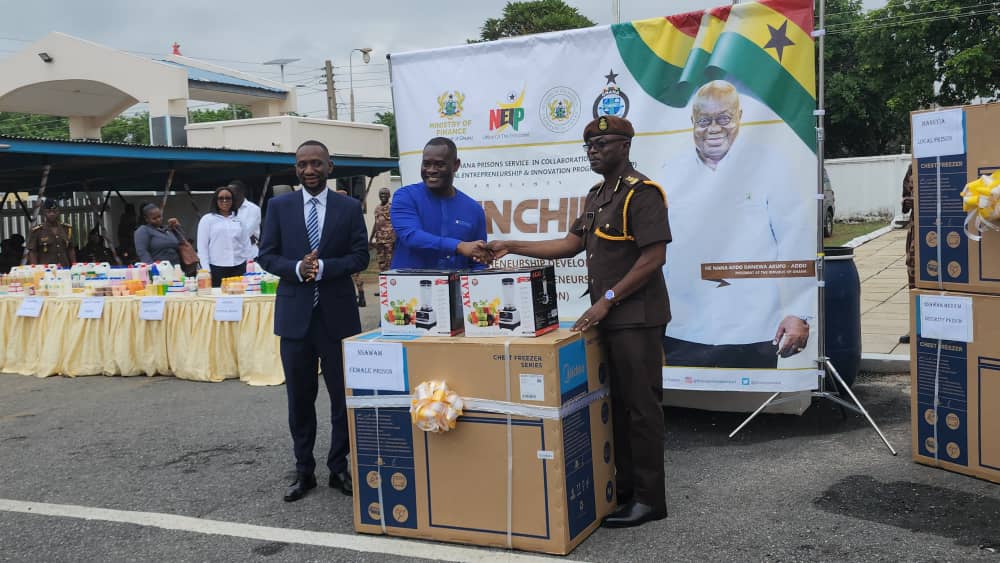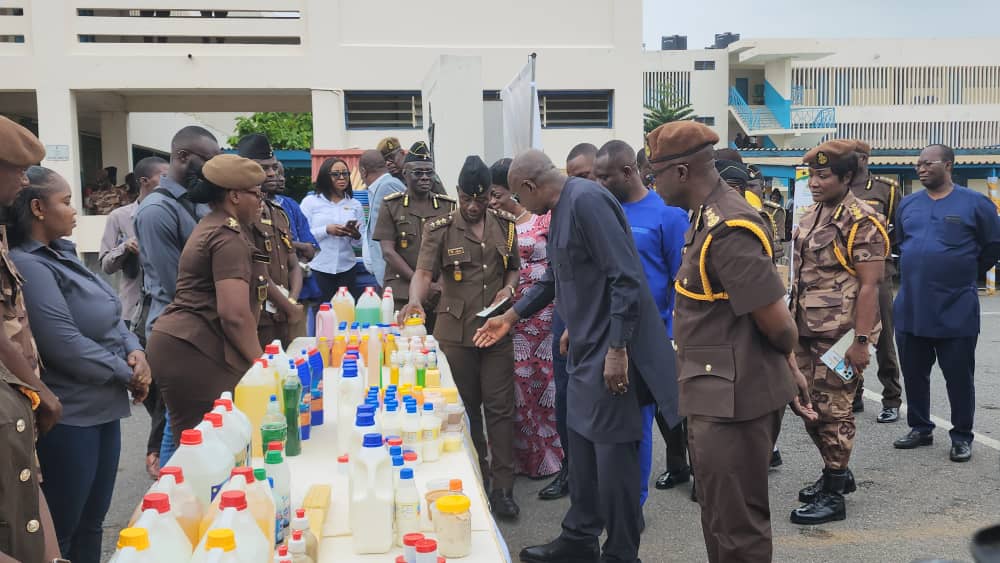Author: Beyonce Diamond Kpogli
The National Entrepreneurship Innovation Programme (NEIP), in collaboration with the Ministry of Finance, Ministry of Interior, and Ghana Prisons is targeting to train about 1,240 officers and inmates in various light manufacturing areas like soap and detergents making, grains and cereals processing, and packaging.
The rest include juice processing and packaging, all local fruits, nuts, tubers, and others, to be able to set up their own businesses upon their discharge from the prisons.
According to the project, grants will be provided under the Youth In Innovative Agric Disbursement for those who did fruit juice processing and Presidential Startup Support and You Start for the other products.
Launching the program, Hon. Ambrose Dery, Minister of Interior said the program will provide employment opportunities for the beneficiaries and also reduce the chances of the people living in prisons and really and those getting back to the prison.
He said the inmates who benefit from the program will also contribute to Ghana’s long-term strategy vision.
“Our prisons should not only be institutions of punishment, but also spaces for
rehabilitation, redemption restoration. By empowering inmates with vocational
skills and entrepreneurial knowledge, we are not only equipping them for a brighter
future but also fostering their reintegration into society as productive citizens.”
Hon. Dr. John Ampontuah Kumah, Deputy Finance Minister said the initiative is part of the government’s vision to build Ghana as an entrepreneur nation.
He added “to expand that, we want every Ghanaian whether you are in prison, public worker, politician, let us look at how to start businesses and also encourage young people to find jobs in the private sector.”
Mr. Kofi Ofosu Nkansah CEO of NEIP on his part said the government has launched an ambitious youth empowerment program to create 1-one million jobs for the next three years with You Start, and other interventions.
According to him, they can’t do it without involving over ten thousand youths in the various prisons in Ghana.
“The programme will help contribute to Government’s overall import substitution programme where we are able to replace
imported products with locally produced ones that have Made in Ghana labels on them.”
….The Soaps and detergents produced will help improve the hygiene and well-being of inmates, and help reduce diseases and skin rashes, while the various food and drink products will help improve the diets of inmates and help improve their overall health.
It will also help reduce the resources the Government spends to provide detergents and food products to inmates. Economically, the Prisons will also generate some money from the sale of these packaged products,” he stated.











































